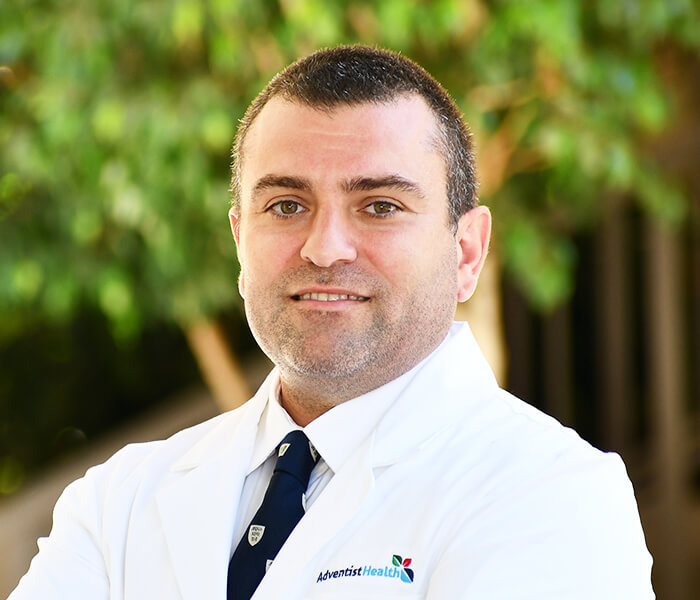Advanced Interventional Gastroenterology Services
There are times when digestive problems may require more advanced testing and procedures that are performed by board-certified, fellowship-trained physicians in the newly emerging field of interventional gastroenterology.
Interventional gastroenterology provides advanced, less invasive diagnostic and treatment options for people suffering from complex gastrointestinal issues, including:
- Acid reflux/gastroesophageal reflux disease (GERD)
- Bile duct diseases such as stones, strictures and cancer
- Colon and rectal diseases
- Dysphagia
- Esophageal cancer
- Esophageal stricture
- Pancreatic diseases such as pancreatitis, cysts and cancer
- Stomach/Gastric diseases such as cancer, polyps, varices and bleeding
- Diverticulitis
Treatments and procedures
Interventional gastroenterology encompasses a variety of advanced, minimally invasive endoscopic procedures utilizing advanced imaging and new technology to provide patients with alternatives to more invasive treatments.
Adventist Health Glendale is pleased to offer these procedures, including:
Endoscopic retrograde cholangiopancreatography (ERCP) – Combines the use of endoscopy and fluoroscopy to diagnose and treat certain problems of the biliary or pancreatic ductal systems, such as gallstones, pancreatitis, trauma or tumors/cancers.
During ERCP, a tiny camera on a tube is passed down your throat into your small intestine while you are under sedation. A smaller tube is then inserted through the endoscope to reach your bile ducts and a contrast dye is injected so that your tiny pancreatic and bile ducts are more visible on X-rays. Providers can also treat issues they find during this procedure.
Endoscopic mucosal resection (EMR) – A less invasive alternative to surgery for the removal of abnormal or precancerous tissue from the digestive tract.
During EMR, a provider uses an endoscope and an electrical snare—a thin wire fed through the endoscope—to locate, capture and tighten around the tumor or abnormality. An electrical current is then fed through the snare, separating the tumor and cauterizing the wound at the same time.
Endoscopic ultrasound (EUS) – A minimally invasive procedure that combines the use of endoscopy and ultrasound to assess diseases of the digestive tract and other nearby tissues/organs.
During an EUS test, a provider uses an endoscope with an ultrasound probe on the end. This probe sends out sound waves to produce images or your organs, tissues and blood vessels. It can be used to evaluate or diagnose abdominal or chest pain, cancer spread, abnormal growths, gallbladder diseases, lung diseases, pancreatic diseases and swallowing disorders such as Barrett’s esophagus.
Luminal stenting – A type of stent that is placed in the digestive tract if a patient has a growth or obstruction in the esophagus, stomach, small intestine or colon.
Stents are devices that create space when a duct or vessel has become obstructed by an abnormal growth. Luminal stents are often used for colorectal disease or esophageal cancer, as well as a temporary treatment for colon blockages, preventing the need for immediate emergency surgery. It could also prevent the need for a colostomy (an opening, or stoma, for the colon through the abdomen).
We’re here for you
Gastrointestinal issues can affect men and women of any age and many times can be the result of other factors impacting health. Early intervention by a gastroenterologist is vital to receiving the proper diagnosis and treatment.

